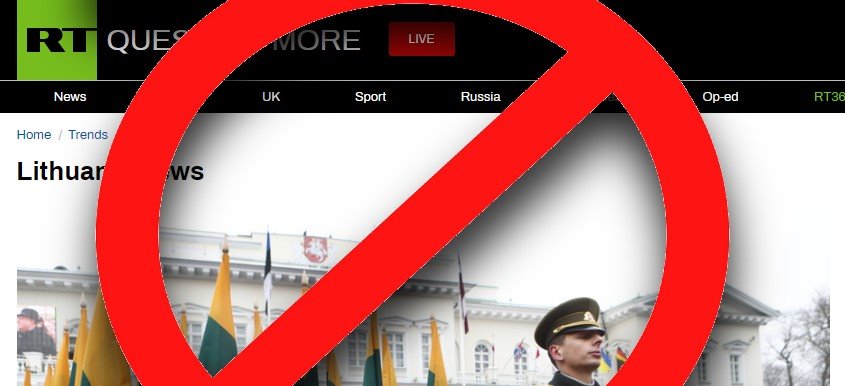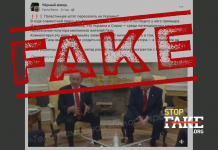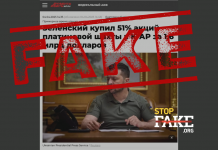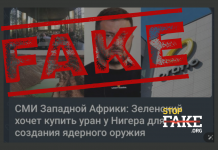Russian propaganda aimed at Baltic states is one of the strongest in Europe and poses a threat not only for them, but also for the stability of the region, the integrity of the European Union and NATO alliance capabilities. It is no surprise, then, that Lithuania, Latvia and Estonia defend themselves with all necessary means by banning pro-Kremlin media. What is surprising, though, is that they have some unusual allies – German media and an organisation fighting for… the freedom of press.
In the beginning of July, Russian tv RT (formerly known as Russia Today) has disappeared from the cable tv. It happened not long after similar ban touched this Kremlin propaganda outlet in Latvia. Surprisingly, those decisions are criticised by some Western media but also by… journalist organisations.
Lithuanians got rid off the RT after the decision by the Radio and Television Commission (LRTK): “We forbid broadcasting of those programs not because of violations, but because there is a person on the sanction list who is involved in the programs of this television”, the head of LRTK Mantas Martišius explained for Euractiv portal.
The person on the sanction list mentioned above is Dmitriy Kiselyov, the head of Russian state corporation Rossiya Segodnya, that includes e.g. RT television, information agency RIA Novosti and Sputnik website. Kiselyov was sanctioned by the EU for the propaganda of the media he directs surrounding the annexation of Crimea by Russia in 2014. For the same reason the RT broadcasting was banned in Lithuania. At the time, Lithuanian authorities appealed to other EU countries to also stop the Russian propaganda promulgated by Rossiya Segodnya corporation. At the same time in January of this year, Estonia banned Kremlin website Sputnik.
However, there are some proofs that it can be ‘the voice of one crying in the wilderness’, such as a “report” published by the German journal “Zeit”. In the article “A blockage with limited effectiveness” we read that “the ban justified with Eu sanctions has no practical consequences and is based on false assumptions”. Importantly, the journal points out that “contrarily to what happens in Latvia, in Berlin the employees of RT and Sputnik enjoy the freedom of activity: they can ask questions during press conferences, make livestreams, report political party meetings and they are organised in central German foreign reporters association: among 420 members of the Foreign Press Association (VAP) in Berlin, 19 work for RT or Sputnik”.
Georgios Pappas, the head of the association said for the “Zeit” that the fact that collaborators of those media do not work so independently as other journalists, has no importance for VAP: “The VAP’s board is not meant to judge those media”, sais Pappas. In his opinion “there is no need to do anything about it, because the freedom of the press is the most important thing”.
We read in “Zeit” that also representants of the Journalists Without Borders oppose to the fight against RT and other Kremlin media. This international journalist organisation condemned banning the Kremlin’s RT and its managing director Christian Mihr quoted by the “Zeit” spoke even about “the abuse of the EU sanctions by Baltic States governments”. “Blocking the access for some media or limiting their work is not the objective nor the content of the sanctions against citizens of the Russian Federation”, said Mihr. In his opinion „sanctions are not the appropriate mean to prevent Russian media in Baltic States from using sometimes aggressive disinformation”.
This specifically understood „freedom of press” of the Russian media was able to be observed in the Baltic States many times. In order to observe it, it is enough to see the Bulletin of the Centre for East European Studies of University of Warsaw. It is stated there, based on the report of Latvian Constitution Protection Bureau, that:
“Russian propaganda in Latvia serves the purpose of undermining society’s trust in the state and inspiring potential conflicts based on ethnical and linguistic differences and different views on the history […]. The report explains that Russian propaganda goals correspond with the goals of Russian foreign policy, which aims to strengthen geopolitical influences in the region, to weaken the EU and NATO and also to weaken the position of the Baltic States in these organisations”. For example “in 2017 one of the main topics was the dislocation of NATO forces in the region – the Kremlin tried to persuade Baltic societies that it consisted a threat for the local civilian community”, we read. There are dozens of similar examples from the region.
As we see, this specifically understood “freedom of speech” is in fact more important for the “colleagues journalists” from the “Zeit”, the German Foreign Press Association and from the local Journalists Without Borders division, who express their solidarity with Kremlin propagandists.
Wojciech Mucha / „Zeit” /Euractiv.pl / studium.uw/edu.pl
Follow StopFake PL on Facebook, Twitter, Instagram and Telegram.





